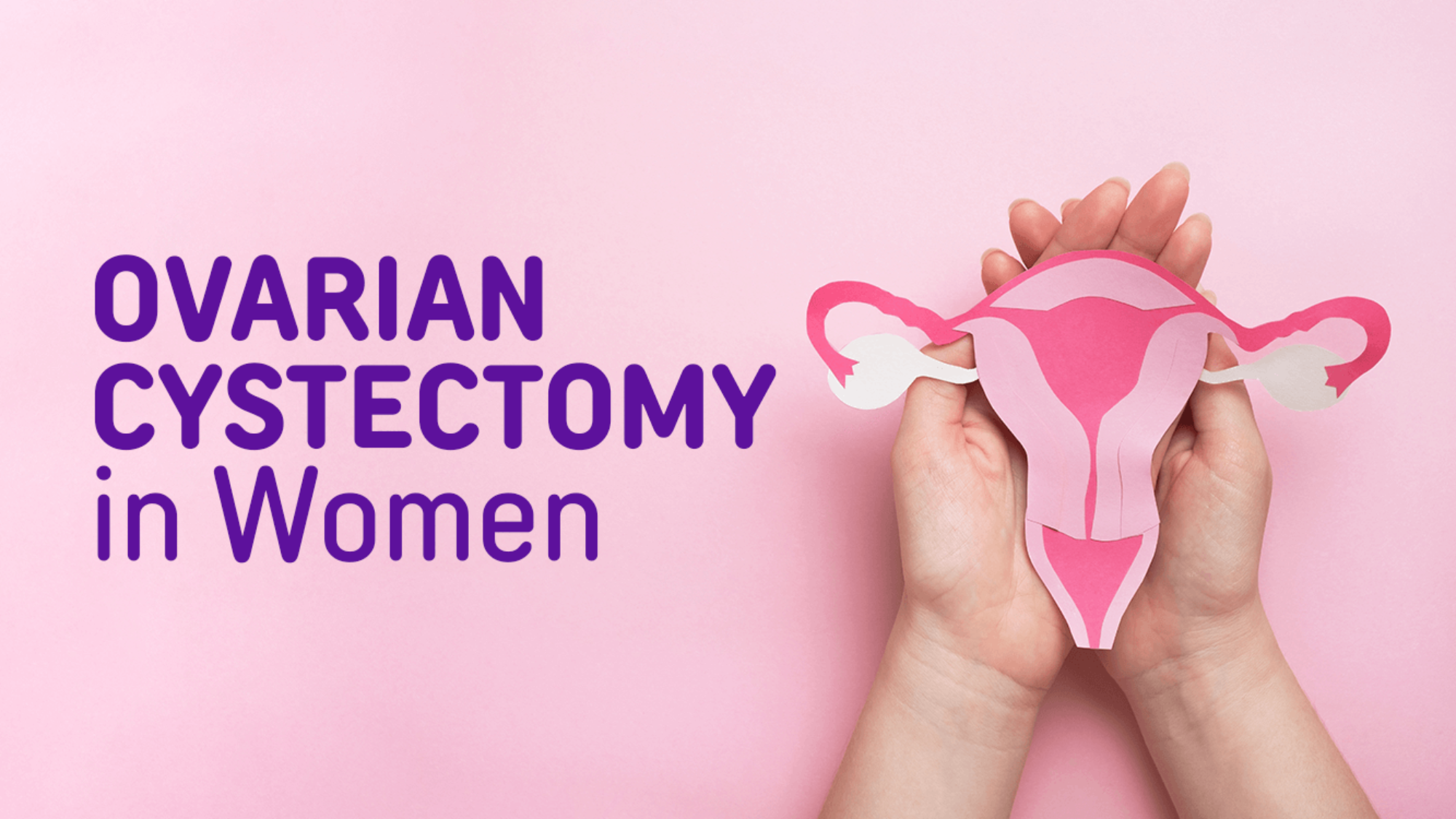Ovarian cysts are fluid-filled sacs that develop on the wall of the ovaries. They are common in women and can occur during their menstrual cycle. Most ovarian cysts are harmless and disappear on their own, but some can cause pain or discomfort and may need medical attention. Some types of ovarian cysts, such as functional cysts, are related to the normal functioning of the ovaries. Others, such as cystadenomas or endometriomas, are abnormal growths that require treatment.
Ovarian cysts can also be a symptom of other conditions, such as polycystic ovary syndrome (PCOS). In rare cases, ovarian cysts can become cancerous and require surgery. If you have symptoms such as pelvic pain, irregular periods, or bloating, it is important to see a doctor for a proper evaluation.
Banker IVF is the best IVF centre in Ahmedabad, wherein we conduct transparent lab tests and have precision in treatments. Banker IVF is your one-stop solution for all infertility-related issues. If you are suffering from any sort of infertility, your solution lies here. Dr Manish Banker and his team of fertility experts will guide you and take your journey from infertility to fertility.
In today’s blog, we are going to answer the following questions:
- What is the relationship between fertility and ovarian cyst?
- How ovarian cyst affects fertility?
- Can someone get pregnant after ovarian cyst removal?
Let’s answer these questions in detail. According to the research, more women in the country—roughly 20-25% of Indian women suffer from PCOS.
Women with ovarian cysts include:
- 60% are obese
- 35 to 50% have fatty livers.
- 70% have insulin resistance
- 60–70% of men have higher testosterone levels.
- 40% to 60% of people are glucose intolerant.
Q1. What is the relationship between fertility and ovarian cyst?
A decline in fertility may result from some ovarian cysts. However, it depends on the type of ovarian cyst a person has.
The ovarian cysts listed below could affect a woman’s fertility:
- Endometriomas: Endometriomas cysts, are a complicated version of endometriosis. It is a condition in which the tissue normally lining the uterus (endometrium) develops outside the uterus. These ovarian cysts might be related to problems with conception.
- Polycystic ovary syndrome (PCOS) – related ovarian cysts: several small cysts on the ovaries, an irregular menstrual cycle, and elevated levels of certain hormones are all symptoms of the condition known as a polycystic ovarian syndrome (PCOS). PCOS is associated with irregular ovulation, which may make some women’s fertility problems worse.
The below mentioned ovarian cysts listed below do not usually affect a woman’s fertility.
- Operative cysts or Functional cysts:
Operative or functional cysts, which include corpus luteum and follicular cysts, are the most common type of ovarian cyst. They develop during a typical menstrual cycle and do not cause or contribute to infertility. Cysts that are functional or operational indicate that the processes necessary for conception are in motion.
- Cystadenomas are Ovarian growths that form on the ovaries’ outer surface. Although they might need therapy, they do not affect fertility.
Q2. How ovarian cyst affects fertility?
Depending on the size, location, and method of the cystectomy, ovarian cystectomy, which is the surgical removal of a cyst on the ovary, may have an impact on fertility. There may be little to no impact on fertility if the cyst is on the ovary’s surface and may be removed without harming the ovary.
It’s possible that the ovary with the cyst won’t function regularly until it heals completely from the operation. The hormones that control the menstrual cycle, progesterone, and estrogen, may be affected by this. This may occasionally result in irregular periods or transient sterility.
However, it is important to know that these effects could be temporary and the hormone levels will get back to normal after a few hours of surgery.
Q3. Can someone get pregnant after ovarian cyst removal?
Ovulation and menstrual periods typically get normal within a few months following surgery if the cyst is functioning and is removed with Laparoscopy treatment. Many of the ladies in these situations are able to get pregnant within the first few months following surgery.
However, recovering and regaining fertility may be more challenging if the cyst is cancerous or if the ovary needs to be removed. The length of the recovery period can vary depending on the type of operation and the patient’s general condition.
There is no defined time frame and it can be difficult to anticipate when a woman will be able to become pregnant following ovarian cyst surgery.
Consult a gynecologist if you’re having trouble becoming pregnant to rule out any possible links between an ovarian cystectomy and your infertility.
